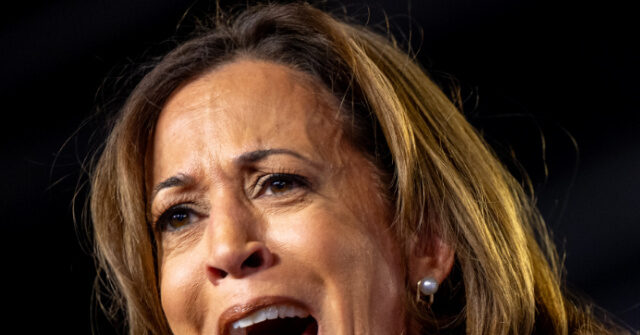In a recent interview with Fox News Channel’s Bret Baier, Vice President Kamala Harris displayed a starkly different demeanor than the “joyful campaign” she has been promoting. The contrast was evident in Harris’s heated and combative responses to Baier’s inquiries, which stood in direct opposition to media portrayals of her campaign as lighthearted and engaging. Reports in September noted her alleged ability to maintain a positive and playful campaign style, one that seemingly embraced social media trends while avoiding the negativity often associated with Donald Trump. This characterization, however, was notably absent during the tense exchange on Fox News, raising questions about her public persona.
The interview marked Harris’s first significant television appearance where she faced challenging follow-up questions, which seemed to fluster her at times. The intensity of the conversation led to perceptions that Harris was struggling to maintain her composure, prompting the Trump War Room to accuse her of “screaming” at Baier. This portrayal contradicted her carefully curated image of a candidate embodying joy and resilience, exemplifying the challenges that come with sustaining a particular narrative under pressure. Many viewed the interactions as revealing a vulnerability in Harris’s public facade, which seemed to buckle under the scrutiny of real-time questioning and debate.
As the exchanges became increasingly charged, Baier found himself needing to interject, apologizing for the apparent escalation of their dialogue. His remark that “we are speaking over each other” highlighted the degree to which the conversation had veered away from civility and into confrontation. This acknowledgment underscored the difficulty Harris faced when her carefully constructed image of positivity was challenged by substantive questioning, marking a significant moment in her campaign where the stakes felt particularly high and the pressure palpable.
In the aftermath of the interview, David Plouffe, a senior advisor to Harris’s 2024 presidential campaign, took to social media to express his discontent with the way the interview unfolded. His description of the exchange as an “ambush” sought to frame the narrative around Harris’s performance and perhaps mitigate any potential damage that might follow from public perceptions of her engagement style. This reaction indicated a level of concern from her campaign team about how such encounters could impact Harris’s public image and overall viability in the presidential race.
The juxtaposition of Harris’s pre-interview narrative as a joyful and approachable candidate against her combative performance during the Fox interview serves to highlight the complexities of political campaigning. Candidates often grapple with the dual task of presenting a relatable persona while also defending their policies and positions under pressure. Harris’s struggle to balance these aspects during the interview underscores the difficulties faced by politicians in maintaining their crafted images when confronted with rigorous journalism, especially in highly polarized media environments.
In sum, this encounter on Fox News represents a crucial moment for Kamala Harris’s campaign, illustrating the challenges inherent in projecting positivity while simultaneously engaging in political discourse. As she navigates the pressures of a presidential campaign, it remains to be seen how her team will address the disconnect between her intended image and her performance under scrutiny. The stakes are high in the 2024 race, and this interview may serve as a prescient example of how candidates are tested in the public eye, ultimately shaping their narratives in the eyes of voters.

